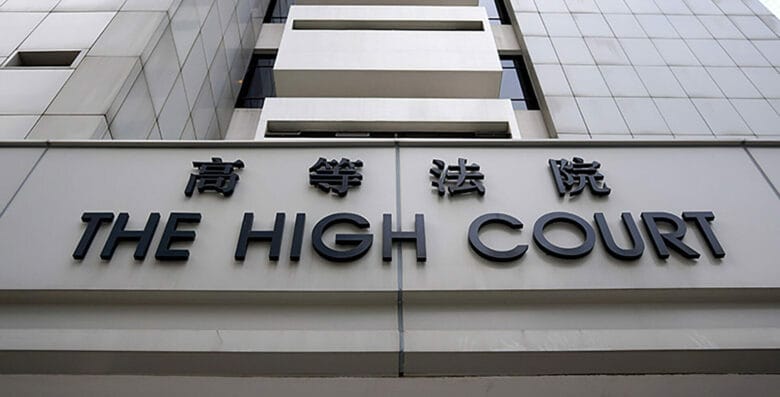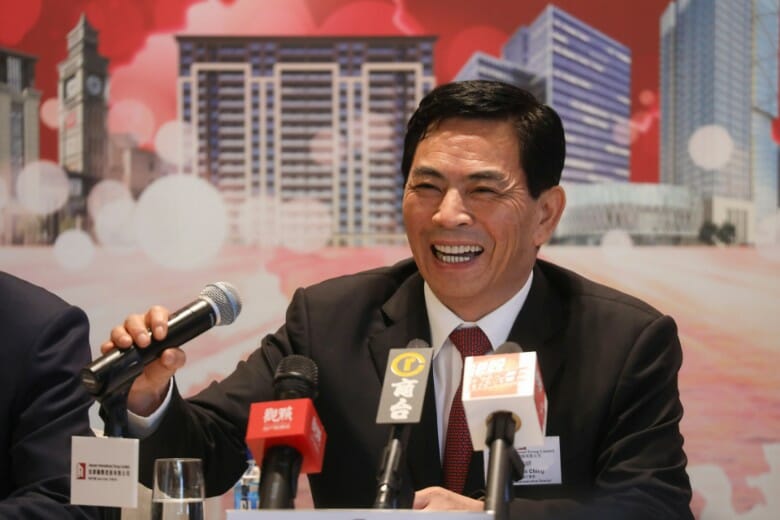
Hong Kong’s High Court ordered Jiayuan’s liquidation in May last year
Jiayuan International, one of the first mainland developers to commence liquidation amid China’s ongoing property crisis, has seen one of its projects taken over by a mainland company potentially linked to domestic creditors or the local government, in a move which analysts see as an ominous precedent for offshore creditors of China Evergrande Group and other bankrupt developers.
Nanjing-based Jiayuan’s liquidators, who were ordered by a Hong Kong court to begin winding up the company in May of last year, disclosed in a filing to the Hong Kong exchange on Wednesday that the company’s 63 percent stake in a one million square metre (10.8 million square foot) commercial and residential project in the eastern Chinese city of Qingdao “was transferred in October 2023 to Qingdao Jinhong Boan Investments Limited,” a company which they described as “apparently outside the Group.”
“It appears to the Liquidators that the Proposed Preservation Actions could be arrangements made by the onshore creditors and / or the local government to facilitate the completion and delivery of housing projects and / or ringfencing the value of the property development project in Qingdao,” representatives of Deloitte Touche Tohmatsu, Jiayuan’s appointed liquidators, said in the filing, adding that the liquidators are still gathering information and will consult with legal advisors.
The abrupt removal of the project from Jiayuan’s ownership casts further doubt on the legal reach of offshore liquidators in seizing onshore assets, and dims prospects for Evergrande’s offshore creditors to recover their share of the company’s $329 billion in liabilities after Hong Kong’s High Court ordered the developer’s liquidation earlier this week.
Slim Moves Toward None
The Deloitte officers discovered the transfer of the company’s stake in the Qingdao Jiayuan Huafu project, described by the liquidators as a “high-end” development comprising residences, offices, schools, a mall, and a hotel, by checking records in China’s National Enterprise Credit Information Publicity System, with the project name having been changed to Laoshan Shoufu in October.

Former Jiayuan International chairman Shum Tin-ching back when things looked more cheerful
Deloitte noted that the change in ownership could have been a result of onshore creditors taking more vigorous action to recover claims, or part of the local government’s efforts to protect the asset from offshore claims in order to ensure project completion and delivery.
As many of China’s developers have defaulted on offshore borrowings, the country’s leaders have worked to keep a lid on potential unrest by prioritising delivery of uncompleted homes under a policy directive described as “stabilising people’s livelihoods.”
“Onshore entities/project companies are independent legal entities from the offshore liquidated entities and operate under an onshore legal system,” Chang Li, China corporates specialist at S&P Global Ratings told Mingtiandi. “It’s not a surprise to see onshore creditors take actions to recover their claims on those onshore entities and ringfence the value of the projects. Local governments are also likely to put housing/project construction and delivery as top priority.”
Li added that these priorities add to the risks for offshore investors and present challenges to collecting under debt restructuring plans.
Jiayuan’s stakeholders have made an estimated RMB 30 billion ($4.2 billion) in total claims against the company as of Wednesday, comprising public bonds, private debts, financial guarantees and other contingent liabilities, according to the filing.
Restructuring in Limbo
Some of Jiayuan’s offshore assets have already been placed under receivership or pledged as security to lenders, further eroding the company’s asset base, the liquidators noted.
Those assets include a 60,000-square metre mixed-use project in Macau’s Taipa district, with potential liquidation proceeds already pledged to lenders Tai Fung Bank and ICBC (Macau) as security on a HK$3.2 billion outstanding facility. Also, 450 million shares representing a 73.56 percent stake in Jiayuan’s Hong Kong-listed property management subsidiary Jiayuan Services have already been placed under receivership on behalf of lender Valuable Capital Ltd.
In Cambodia, where Jiayuan owns three project companies holding 1.3 million square metres of undeveloped land parcels, lender CTI Capital Management Ltd has demanded repayment of $129.6 million in borrowings, with Jiayuan’s shares in the projects’ Cambodian holding company charged as security to the lender.
“It is anticipated that the impact of the above-mentioned developments on the Company’s onshore and offshore operations will cause the net asset value of the Group to drop significantly,” said the liquidators.
The struggles for Jiayuan’s creditors could provide a preview of what Evergrande’s lenders will face in the process which kicked off this week.
“The Jiayuan asset transfers seem to reflect official priority for China’s insolvent developers, which is to overwhelmingly focus on the completion of pre-paid projects. With Jiayuan, this appears to be a clear attempt to ring fence assets in light of inevitable offshore legal claims,” Brock Silvers, chief investment officer at Hong Kong-based Kaiyuan Capital told Mingtiandi. “Similarly for Evergrande, it remains extremely unlikely that its newly appointed liquidator will receive onshore recognition.”
Leave a Reply